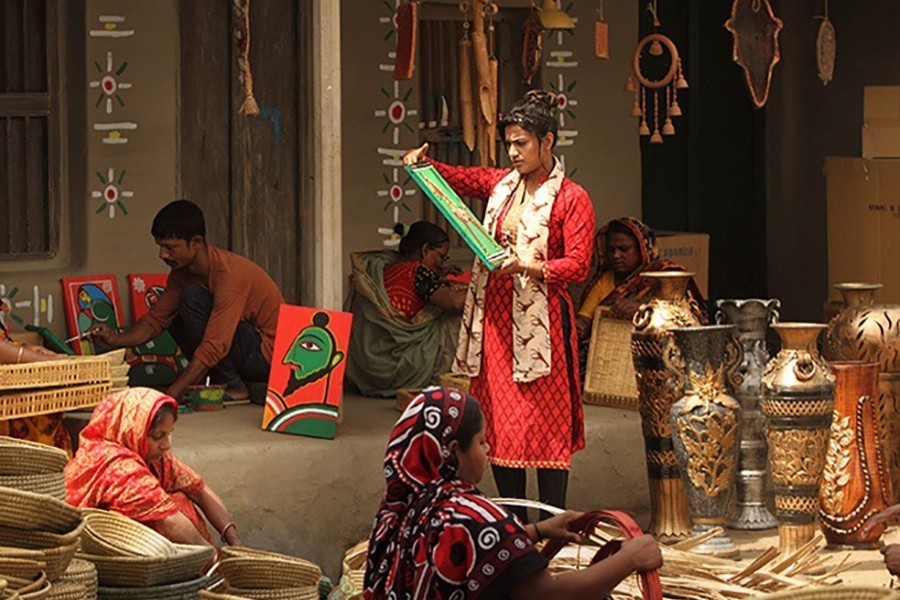There is no denying that the cottage, micro, small and medium scale enterprises (CMSMEs) have a robust presence in the economy. The government and experts are keen on facilitating the sector's growth. They did often come up with recommendations so that the CMSMEs could be mainstreamed. The pandemic, especially, during the period of economic shutdowns, dealt a heavy blow to the sector by disrupting its supply chain. As a result, the damage to the business and sufferings of its workers were immense. The government declared a stimulus package worth Tk 200 billion to bail out the sector. But the problem is the CMSMEs are diverse and mostly lack access to institutional credit. The time-consuming and complicated procedures to assess the loan-seeking schemes' creditworthiness, the need for collateral/security, the recovery risks and other bureaucratic barriers leave a dampening impact on the CMMEs to access institutional credit. Worse, there is a problem of mindset among the operators of bank and other sources of institutional credit. In fact, they have a bias against the small- and medium-scale businesses.
Thus, so far the banks could meet only 40 per cent of the loan disbursement target from the stimulus package. To address the bottleneck, the central bank is planning to extend the disbursement target of the stimulus package for the third time till December. At the same time, to cover the recovery risks for the banks, the central bank in July also introduced a credit guarantee scheme worth Tk 20 billion to share credit risks with the lending banks. Interestingly, when the disbursement of the stimulus money for the CMSMEs is facing such hurdles, 90 per cent disbursement target of the Tk 300 billion stimulus fund for the big industries has already been fulfilled. That makes it plain why despite the government's honest efforts to help the CMSMEs out, the progress has been so little.
The government will need to take a long hard look at the issue. Necessary measures will have to be taken to facilitate the credit delivery mechanism so that the CMSMEs may access the government-provided credit in time and without much hassle. Notably, the industry sector as a whole contributes 31 per cent to the country's Gross Domestic Product (GDP). And of that contribution, the lion's share is made by the CMSMEs. Also, the industry's 80 per cent workforce is employed with the CMSMEs, while of all the industrial units in the country, 90 per cent belong to the CMSMEs.
A recent survey carried out by a non-banking financial institution that is providing credit to CMSMEs has found that 92 per cent of the CMSMEs start their businesses with their own money. Whereas, they provide 80 per cent of the jobs in the industrial sector and that comes to around 25 per cent of the country's entire labour force. Such a huge and vital sector --- 95 per cent of which, as the study further pointed out, cater to the domestic market --- has remained outside the purview of institutional credit. This is unfortunate and unacceptable. This hugely potential sector of the economy, therefore, deserves support from the formal banking and non-banking institutions. If it gets the needed backing, its growth will be accelerated thereby enhancing its capacity to create jobs manifold. So it is imperative that the government made every effort to exploit the full potential of the CMSMEs. If it is found necessary to effect some changes in the rules and procedures of the formal banking sector to accommodate the CMSMEs, those should be made. This would serve the economy better.


